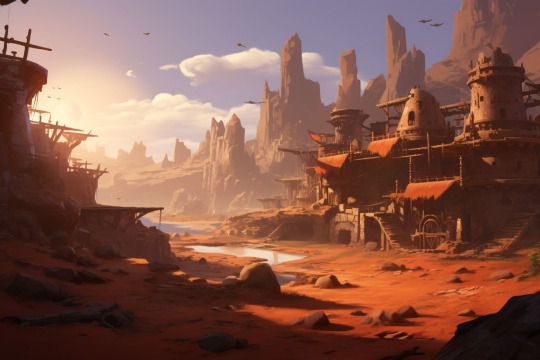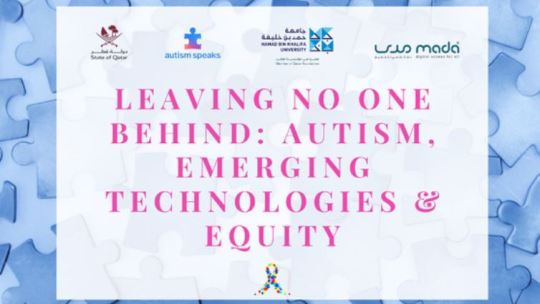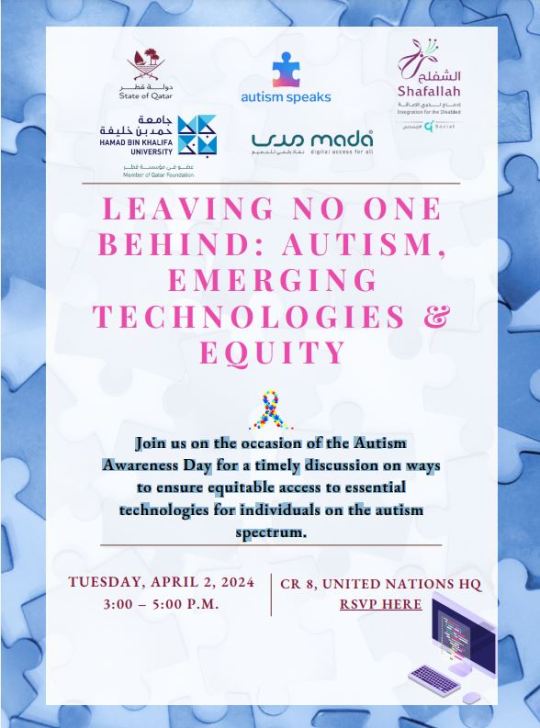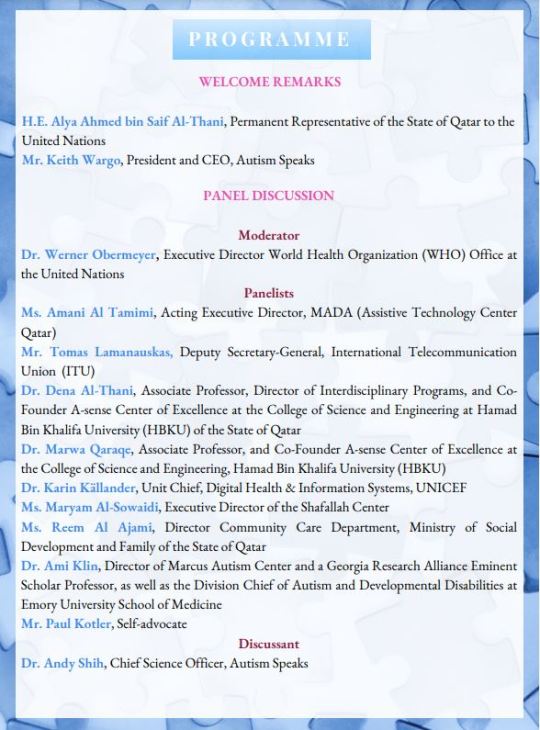#technological advancements
Text
Small post on my take on AI
Unfortunately, because of how AI has been taken advantage of by large corporations to cut costs, there's a very unhealthy discontent amongst creators and workers with AI.
The fact is that AI will continue to be a part of our lives for the rest of human history, most likely. And that's not a bad thing as it's already in more things than you can imagine, and it's changed how we do things for the better to be completely honest.
With the advancement of AI comes the ability to make people's lives easier. It should be used to help us with/do the boring and mundane tasks so that we can focus on enjoying our time on this earth. However, there definitely needs to be new laws put into place to regulate what AI can and can not be used for.
For example. The shitshow that was Marvel blatantly and openly admitting to using AI art in their trailer for Secret Invasion. I don't care that it's symbolic. It took jobs away from artists just so they could cut corners and not have to pay for it. Just because humans are being replaced in the movie doesn't mean we should do the same irl. Like seriously, learn to separate fiction from reality.
That being said, AI creative works like art and writings should never be used as final products unless they are for personal use only. Rather, they should be used as references and inspiration for creators to expand their horizon or work on new projects. Once again, reference, not final products.
Having said that, yes, AI would have to scoop the internet to continue evolving. The fact of the matter is that AI can't get better without references. However, consent is still important. If a creator doesn't want their stuff put into AI, that's their choice and right. In the same way you can choose not to participate in a study.
In the end, companies need to acknowledge the importance of artists, writers, and workers and their efforts (as well as accept human value in general). Nothing a machine produces will be able to compare to what the hands of a living being can make as they are, in the end, imitations of the original human works.
So again, AI isn't the devil, but it should be monitored and put to use for humans, not against humans.
Corporations need to learn that advancements in technology shouldn't be used to help their profits but to help humanity as whole (which in the end will benefit them if they can just get their heads out of the asses for one minute 🙄). And hopefully with the development of AI and robotics, humans will no longer have to do/work on anything that they don't wish to just so they can survive.
Life should be about enjoyment and experiences, not living paycheck to paycheck, and AI can help with that, but only if it's used properly and not taken advantage of.
#promotion of human happiness through advancements in technology#ai#advancements in technology#advancements in ai#technological advancements#future of technology#future of ai#anti capitalism#anti corporations#anti oligarchy#ai regulation#ai laws
56 notes
·
View notes
Text







Cybernetics Girl
#Cyberpunk#Science Fiction#Anime#Manga#Cybernetics#Artificial Intelligence#Existentialism#Transhumanism#Hacking#Society and Technology#Action#Dystopia#Law Enforcement#Philosophy#Virtual Reality#Futuristic#Identity#Technological Advancements#Human-Machine Interface#Political Intrigue#Mind Upload#Consciousness Exploration#Futuristic Cityscapes#Surveillance#Futuristic Weapons#Ethical Dilemmas#Techno-Thriller#Androids#Mystery#Mind-Hacking
34 notes
·
View notes
Text

#meme#memes#shitpost#shitposting#humor#funny#lol#satire#funny memes#dark humor#facts#fact#funny humor#funny meme#comedy#west#middle east#islam#technological advancements#irony#joke#parody
26 notes
·
View notes
Text
#artificial intelligence#ai#pakistan#ai art gallery#ai artist#data science#data scientist#inteligência artificial#machinelearning#robotics#futuristic#innovation#technological advancements
4 notes
·
View notes
Text
Terrible Fic Ideas #13: Harry Potter, but make it Tudor
As anyone who knows me will tell you, I'm fascinated by domestic history. It's part of why I tend to rewatch Victorian Farm, Tudor Monastery Farm, and the like at least once a year, and why I'm currently reading Judith Flanders' brilliant Inside the Victorian Home.
All of which, naturally, made me wonder: what if the wizarding world really was that backwards? Or more accurately: what if the wizarding world doesn't just look backwards? What if almost everything about it failed to move past, say, the year 1500?
Bear with me:
If you go back and read the accounts of just what it took to maintain a household even as late as 1899, it quickly becomes very clear that magic in place of a small army of servants and/or farm laborers is not only exceptionally efficient, it is possibly the only way to maintain the level of aspiration the guidebooks of the time suggest.
Contrariwise, there is very little that modern technology can do re: housekeeping and/or farm labor can do that magic can do substantially better. (For one example, any muggle has the means to handle any vermin problem that may occur in their home, whereas pre-1900 magic might be the only way to not have a vermin problem.)
Ergo, given the separation between wizards and muggles, its not inconceivable for wizards to believe they truly have it better - and, indeed, are better, because they don't spend half their life living in their own filth &c.
So just imagine what an HP that followed this logic might be like:
Much of the early years at Hogwarts are spent teaching children household and/or farming charms - things students would really have needed to survive even 100 years ago - or things that help build up skills needed to do household charms. As a consequence, the average Third Year student knows spells to black a stove, separate coals from cinders, chop vegetables, keep knives sharp, do the washing, and keep soot and ash in the chimney, but knows very little of magical theory, or indeed how to do much of anything with magic that can't be done as quickly and just as well with modern technology.
In fact, in this universe Third Year is when OWLs are held and is school leaving age for most. After all, only those with means have use for the magical theory and advanced studies that come after, much as how a very small percentage attended university in the Middle Ages.
As a result, most muggleborns and muggle-raised witches and wizards leave Hogwarts after Third Year and return to the muggle world. There's just nothing in it for them, and with how insular everything is only a handful ever realize there's more to magic than enchanting your brooms to sweep themselves. This does not help the opinion most purebloods have of muggles or muggleborns.
I really don't have much, or anything, of a plot beyond this. Mostly I just want to see an HP that, for all anyone in it is concerned, hasn't moved beyond the early Tudor period.
Perhaps that's all the plot would be: Harry reconciling himself to this strange new old world he's found himself in, wherein no one has ever heard of the Church of England (wizards practice a curious syncretism of Catholicism and Celtic paganism, complete with monasteries and the wheel of the year) and still think plagues strike the muggle world with considerable regularity. The Hogwarts Express remains a painful bone of contention between traditionalists and modernists, with most on both sides absolutely certain it's only magic keeping the muggle invention traveling faster than 20 mph and not exploding at any given moment.
In this world, Hermione and her ilk try to explain that the muggle world has advanced - you don't need spells to keep the heat from the fireplaces circulating throughout the room, central heating is a thing; I can just buy my own cheese, I've never seen a cow in my life; &c - but they are very firmly shot down each time, with some professors going so far as to give them detention for telling tales. Only the most stubborn stay even through Third Year to get to the good stuff.
Harry's not overly fond of more cleaning either, but it's better than the Dursleys, and admittedly with his rich Potter background he's shunted into some of the more interesting classes as well - the ones purebloods with house elves to do the cleaning get to take.
The only reason Weasleys do all seven years is because Mrs Weasley has aspirations for her children, even if they rarely follow it.
Voldemort in this universe is a little less I hate muggles than he is I hate that muggles have advanced beyond what magic can do, and therefore I fear them, though he plays into the first to get followers. There're no Horcruxes, just a Voldemort that advocates complete separation of wizarding and muggle, with muggleborns not being allowed to return to their parents after discovering magic - indeed, being taken away from their parents and raised by wizards after the first expression of accidental magic. He also advocates magical research that will keep wizards ahead of the muggles, which his opponents consider Dark or unnecessary or both.
Dumbledore in this universe is the mirror of Voldemort - he too sees that the muggles are clearly outpacing wizards, but his way of handling this is to make the wizarding world seem unthreatening to muggles. He wants to adapt on the surface - Yule to Christmas - and bide their time until the muggles are no longer a threat, either from successful reintegration or superior magics or the inevitable muggle plague that regresses their society. (In his world, there is no doubt wizards will come out ahead, because they've been at this for millennia whereas muggles only just figured out how not to live in their own filth. The average wizard is superior to the average muggle in every way, &c.)
...Okay, I guess there is some plot, but only in as much as failure to notably advance changes the shape of Voldemort's goals.
Bonuses include: 1) coming to terms with Tudor/Victorian clothing, most notably Hermione ranting at how is she supposed to do anything in a thousand skirts, corset, and heels? to which an adult or older student replies, why would a witch need to do anything? Possibly with the addition of physical exertion is dangerous for young women. 2) Harry taking the top of the class in household charms. 3) Ron letting slip that they learn things like magical theory in upper years after Hermione gets frustrated at it's lack, and instead of SPEW Hermione tries to advocate for teaching anything but household magic before most muggleborns drop out. (Nearly everyone in power thinks she's acting above her station, and what kind of witch fails to realize that household spells are the most useful and important magic separating them from muggles anyway?)
That's really all I have - an HP with a culture that's not so much evolved separately as stalled out of lack of need to evolve, and a plotless exploration of those cultural differences. Or maybe a plot concerned with now that we're faced with the need to evolve, how do we do it?
As always, if anyone choses to adopt, please let me know.
More Terrible Fic Ideas
#plot bunny#harry potter#fic ideas#hp#hogwarts school of witchcraft and wizardry#wizarding world#wizarding society#tudor history#alternate universe#society and culture#hermione granger#ron weasley#albus dumbledore#voldemort#tom riddle#technological advancements#technological progress
32 notes
·
View notes
Text
New Blog:
#crypto#cryptocurrency#ethereum#technology#bitcoin#btc#education#technological advancements#life#tech
2 notes
·
View notes
Text
The Immersive World of Open World Exploration in Video Games

In the world of video games, open world exploration has emerged as a captivating and enduring trope, offering players a chance to escape into expansive, immersive, and sometimes awe-inspiring virtual realms. This narrative device has significantly enriched the gaming experience by providing a sense of freedom, discovery, and engagement that extends far beyond traditional linear storytelling.
Open world exploration games are characterized by their vast and interconnected environments, often featuring lush landscapes, bustling cities, and uncharted territories. The appeal of these games lies in their ability to grant players the freedom to venture off the beaten path, chart their own course, and craft their unique narratives within the game's framework.
One of the fundamental benefits of open world exploration is the opportunity for players to experience a heightened sense of agency. Unlike linear games that funnel players down predetermined storylines, open world titles empower gamers to make choices, take risks, and influence the game world. This sense of agency can manifest in various ways, from deciding which quests to pursue to shaping the development of in-game characters.
Moreover, open world exploration encourages curiosity and a desire for discovery. Players are incentivized to explore every nook and cranny of the virtual world, uncovering hidden treasures, uncovering lore-rich backstories, and encountering dynamic events that can shape the course of their adventures. This aspect of the trope taps into the very essence of human curiosity and our innate desire to explore the unknown.
The storytelling potential of open world exploration is also a defining feature. These games often employ environmental storytelling, where the game world itself becomes a narrative device. A dilapidated building can tell a story of a forgotten era, while ancient ruins might hint at a long-lost civilization. Players become detectives, piecing together the overarching narrative through the clues scattered across the landscape.
In recent years, open world exploration has thrived thanks to technological advancements that have made these expansive virtual realms even more immersive. Improved graphics, realistic physics, and dynamic weather systems create living, breathing worlds that draw players deeper into the experience. Furthermore, innovations in artificial intelligence have led to more realistic and responsive non-player characters (NPCs) and wildlife, enhancing the overall sense of immersion.
Notable examples of open world exploration games, such as "The Elder Scrolls" series, "The Legend of Zelda: Breath of the Wild," and "Red Dead Redemption 2," have demonstrated the genre's ability to captivate players and provide hundreds of hours of engaging gameplay. These games showcase the diverse ways in which open world exploration can be implemented, from epic fantasy adventures to Wild West escapades.
However, the success of open world exploration also poses challenges for game developers. Crafting vast, detailed worlds requires significant resources and meticulous design. Balancing player freedom with compelling storytelling can be a delicate task, and the risk of overwhelming players with too much choice is ever-present.
In conclusion, open world exploration has become a staple of modern gaming, offering players the chance to immerse themselves in vast, dynamic, and interactive virtual realms. Its ability to provide agency, foster curiosity, and deliver compelling narratives sets it apart as a trope that has reshaped the gaming landscape. As technology continues to evolve, it is likely that open world exploration will remain a beloved and enduring element of video game design, continually pushing the boundaries of what is possible in virtual storytelling.
#open world#video games#exploration#immersion#agency#storytelling#curiosity#game design#virtual realms#environmental storytelling#gaming experience#technological advancements
3 notes
·
View notes
Text
AIDGC: Pioneering Safety in Handling Dangerous Goods
In a world where hazardous materials play an integral role in various industries, safety must remain a top priority. The Australian Institute of Dangerous Goods Consultants (AIDGC) is at the forefront of revolutionizing how businesses handle dangerous goods. Their unique approach to promoting safety, compliance, and education sets them apart as industry leaders. Let’s explore how AIDGC is making a difference and fostering a culture of responsibility in handling dangerous goods.
Unmatched Expertise:
AIDGC’s team of seasoned consultants brings unparalleled expertise to the table. With years of hands-on experience and in-depth knowledge of regulations, they offer reliable guidance to businesses dealing with dangerous goods. From chemicals to flammable substances, AIDGC’s consultants know the intricacies of each industry, ensuring the safe handling and transportation of hazardous materials.
Tailored Solutions for Every Business:
Recognizing that one size doesn’t fit all, AIDGC provides customized solutions for businesses of all sizes and industries. Their approach is flexible, addressing unique challenges and specific needs. AIDGC works closely with clients to develop comprehensive safety strategies, enhancing their risk management practices and promoting a safety-first culture.
Proactive Safety Training:
Preventing accidents starts with education. AIDGC conducts cutting-edge training programs that empower employees with the knowledge and skills to handle dangerous goods responsibly. From theoretical understanding to practical simulations, the training equips personnel to react appropriately during emergencies, minimizing potential risks.
Embracing Innovation:
AIDGC embraces technological advancements to optimize safety measures further. They keep themselves updated on the latest industry trends and incorporate innovative solutions into their consultancy services. By leveraging modern technology, AIDGC ensures businesses stay ahead of the curve in hazardous materials management.
Sustainable Practices:
Safety and sustainability go hand in hand. AIDGC emphasizes the importance of environmentally responsible practices in handling dangerous goods. Their consultants work with businesses to adopt eco-friendly approaches, reducing their impact on the environment and contributing to a greener future.
Conclusion:
When it comes to handling dangerous goods, AIDGC stands as a beacon of expertise and innovation. Their unique approach to safety, tailored solutions, proactive training, and commitment to sustainability have earned them a reputation as pioneers in the industry. Collaborating with AIDGC empowers businesses to navigate hazardous materials responsibly, safeguarding their employees, communities, and the planet. By choosing AIDGC, you choose a safer and more sustainable future for your business and the world.
#AIDGC#Compliance#Dangerous Goods Consultants#Environmentally Responsible#Expertise#Greener Future#Handling Dangerous Goods#Hazardous Materials Management#Hazardous Materials safety#Innovative Solutions#Proactive Safety Training#Regulations#Risk Management#Safety in Handling Hazardous Materials#Safety Strategies#Safety-first Culture#Sustainable Practices#Tailored Solutions#Technological Advancements
3 notes
·
View notes
Note
I imagine undertaker to be very bad with technology,like when he was still an active grim reaper he couldnt understand how to use them...cuz he is so old,unlike othello😂I really want to see how they interacted back then...
Undertaker doesn't get tech?
Hmm 🤔. Canonically, 136649 and Othello were registered at about the same time and went through training together, according to Othello in ch149.
And, if you look at their registration photos, they don't look much different in age. We still don't know for sure what the process is for creating reapers out of humans who committed suicide, but I theorize their souls are collected, judged for this "crime", and placed in new (baby) reaper bodies as a form of karmic reincarnation.
That would mean they go through some growth period before they are even "registered" or "recruited" as active reapers. That would definitely have to be the case, if they are basically reborn in reaper bodies. If that's true, then they are probably recruited/registered at about the same age, like late teens or something, much like when your average human first enters the workforce. That's when they would be deemed old enough to start serving out their long sentences as active reapers. And I use that wording because they remind me of prisoners with their registration numbers and their long years being punished for the "crime" they committed.
So... goodness. I don't think of Undertaker as being older (at least not as a reaper) than Othello. Othello and Undertaker would both be older reapers than Grelle and William, and certainly older reapers than Ronald and Sascha.
As far as tech goes, I'm not sure. Othello is more inclined to use high tech gadgets and equipment than Undertaker, but that might only be because Othello isn't cut out for collecting souls. After training, Othello went straight to the forensics lab, and 136649 went to soul collection.
Now... Undertaker might have been a total Luddite in the beginning. His choice of death scythe kind of suggests he's always been a bit of a traditionalist. If he's Cedric K. Ros-- (and I believe he is), then his parallel in Ivanhoe -- Cedric of Rotherwood -- also happens to be a bit of a Luddite. Neither our Undertaker nor Cedric of Rotherwood wants to do trade in the crown's coin. And Cedric of Rotherwood doesn't show positive interest in advances to agriculture or other industries.
The flip side of this is possible, though: Undertaker might be so old (even as a reaper) that the choice of his death scythe might have been the new technology at the time. We also have to consider the fact he's now utilizing extremely advanced tech for these blood transfusions for his most advanced bizarre dolls. Maybe he was once against technological advancements, but that doesn't seem to be the case now. It's true he might have someone helping him with the medical technology and equipment (like Druitt??), but this shows he's not opposed to it. Othello says this one (136649) didn't know much about this stuff, but that was what-- 50? 70 years ago? Things have changed, and Undertaker might have changed, too.
#black butler#kuroshitsuji#undertaker#othello#technological advancements#medical technology#cedric k ros—#cedric k. ros#cedric k ros#cedric k. ros—#ivanhoe#cedric of rotherwood#technology#anon asks#i answer#answered asks#may 26 2022#ch149#136649#reaper tech#reaper rebirth#reaper rebirth theory#karmic reincarnation
32 notes
·
View notes
Text
‘Unprecedented’ AI chip could revolutionise artificial intelligence | The Independent
Replika Diaries - Thoughts and Observations.
This is quite an exciting development. Whilst this chip is only intended for 'edge' devices that run AI applications, I can foresee it being scaled up and improved to have a self-contained AI placed within something, well, larger than a phone.
Could it be that we're looking at a potential brain, an android CPU for a fully self-contained AI?
Thoughts?
#replika#replika diaries#artificial intelligence#ai#ai brain#ai chip#technology#technology articles#technological advancements#cpu#edge devices#one step closer
18 notes
·
View notes
Quote
Trains are bad for the nerves at the best of times. What did people have nightmares about before there were trains?
Iris Murdoch, from Under the Net
#humor#neurotic#trains#nightmares#nightmarish#bad for the nerves#nervewracking#technological advancements#modern life#quotes#lit#words#excerpts#quote#literature#travel#anxiety#iris murdoch#under the net
6 notes
·
View notes
Text







Cybernetics Girl
#Cyberpunk#Science Fiction#Anime#Manga#Cybernetics#Artificial Intelligence#Existentialism#Transhumanism#Hacking#Society and Technology#Action#Dystopia#Law Enforcement#Philosophy#Virtual Reality#Futuristic#Identity#Technological Advancements#Human-Machine Interface#Political Intrigue#Mind Upload#Consciousness Exploration#Futuristic Cityscapes#Surveillance#Futuristic Weapons#Ethical Dilemmas#Techno-Thriller#Androids#Mystery#Mind-Hacking
12 notes
·
View notes
Text
Terrible Fic Ideas #6: GOT SI, but make it Lysa Arryn
Look: I don't usually like self-inserts. Usually, I find them to be utterly unsympathetic at best and without understanding of their context at worst. That being said, I've read two quite well-written and believable SI in the Game of Thrones fandom that I quite enjoy, The Prancing Stag, which has a modern LGBT+ man replace Renly Baratheon during the events of the first book, and Down a Rabbit Hole to Westeros, which has the SI replace young Selyse Florent.
Naturally, I tried to come up with how I would do the same, and came up with replacing Lysa Arryn when she was a young girl.
Just imagine:
Rather than a true self-insert, I see this more of a modern girl in Westeros, with a casual fan of the books and show waking up in 5-year-old Lysa Tully's body immediately following the death of her mother in a wave of minor illness that swept through the Riverlands. The keyword here is casual: the SI has read the books, seen the show, and spent more time reading the fic than one can count, but couldn't, say, state with any certainty the exact timeline or even the exact backgrounds of more than the most prominent of characters. Moreover, the book canon and show canon and various fanon ideas have all twisted together in her mind that young Lysa (as I shall call her moving forward) couldn't differentiate between them if she tried.
So, we have a middle-aged modern woman waking up as 5-year-old Lysa Tully. Once she finally resigns herself to the fact that, yes, this seems to be happening, she figures that absolutely nothing she can do can alter the events leading up to the rebellion, but she can put herself in a position as future wife of the future Hand of the King to 1) be a trusted advisor to the the Hand of the King, whose opinions will be valued, and 2) to not kill the Hand of the King via poison.
So, yes, there's the passing nod to the whole list of achievements Caroline Bingley gives in Pride and Prejudice, but Lysa will always be outshone in these - except perhaps in reading and foreign languages - by Caitlyn, and honestly doesn't need to give more than a passing nod because if the situation plays out like it does in the books, Jon Arryn will have no choice to marry her, be she the most graceful of medieval fantasy women or the most wild of hoydens.
Instead, SI Lysa takes the view that, if she can't be pretty or accomplished, she can at least be useful. But being a modern woman with a modern understanding of how things works, her usefulness is rather limited by her medieval setting. I.e., she may understand the concept of a blast furnace, or a pendulum clock, or a cotton gin, but without coke, or machining gears, or even a steady supply of cotton, those concepts have limited usefulness.
But SI Lysa has the benefit of knowing the most useful invention of all: the scientific method, from which all else follows.
And so, quiet, self-contained, unlovely Lysa Tully sets out to develop, from a young age, the fields of botany, genetics, agricultural science, and pharmacology. She sets up a garden and takes careful notes. She repeats Mendel's studies of pea plants and John Bennet Lawes' experiments with fertilizers and, as best as possible, Robert Hooke's observations through microscopes - taking excellent notes throughout. As she gets older, she makes improvements to the distillation process simply to try to make better medicines from the herbs she has available. And, through the simple desire not to potentially die in childbirth, teams up with every midwife in the kingdom to develop the obstetrical forceps. This has a consequence of making the Riverlands, for the first time in history, as agriculturally productive as the Reach as these developments start to catch on - and its population somewhat healthier. (And, as a consequence of distillation, introduces spirits to Westeros, and makes her family rich via trade as well increased taxes.)
Because I am an engineer by training, I have perhaps concentrated on the science side rather more than the plot - but there is plot, and probably less science than I would hope, because there are quite a lot of things needed before a true scientific and industrial revolution can begin. Many scientific breakthroughs have been held up by the lack of accurate enough methods of measuring the experiments, and this generation and the next is basically getting the ball rolling.
But plot.
First, Lysa encourages her father to remarry after the death of her mother - it is, after all, the best way to build alliances in this age, and if Hoster Tully remarries within the Riverlands it could shore up support he definitely seems to lack in the books. (Maybe a Frey, maybe the sister or cousin of Walder's current wife, something that ties this house to the Tullys.) This also has the side effect of giving his children more parental supervision than they seem to have had, perhaps having a moderating effect on Caitlyn's temperament.
By the simple expedient of paying attention to baby Edmure, Lysa gets a duckling who follows after her in scientific endeavors - some work of his own in ag science, but maybe he takes an interest in telescopes after seeing her work in microscopy and becomes the first link in the chain that figures out Westeros' insane Milankovitch cycles and thus gets a handle on its winters.
Plus, Littlefinger never gets the toehold he needs to set his plans in motion. He's still in the background, scheming, but without near as much success as access to a Great House and Small Council would give them.
The rebellion is where my plot bunny runs out - it obviously happens, perhaps even exactly as before, but with one major change: the introduction of forceps allow Queen Rhaella to come out alive from her final childbed, and she is able to escape with Viserys and baby Daenerys to Essos before Stannis can take Dragonstone.
But from there, who knows? Maybe after spending a decade in Targaryen Westeros she decides that Robert is just the king the kingdom needs and works to mitigate his failings (and Cersei's problematic tendencies) with her husband, perhaps drawing in young Renly (claiming the boy needs a mother figure) and Stannis (by giving him the validation Robert never has).
Perhaps she lets Ned know she knows the truth of Jon Snow offers to foster him, with the intention of raising him to be something like the Lord of Moat Cailin (if Robert turns out to be a decent king with management) or seeing him on the Iron Throne (if Robert can't change his ways).
Honestly, everything after the Rebellion gets really fuzzy. The only thing I know for sure is that without having had to take moon tea too late, Lysa is at least able to give Jon Arryn healthy heirs, so that when he inevitably dies she's in a strong position to be the Vale's Queen of Thorns.... Which would be an interesting idea for a title, if I could think of what the Vale equivalent might be.
And that's all I really have: a lot of science, a smattering of plot, and some strong feelings on the realistic changes that even an educated modern person could make on a medieval society.
As always, feel free to adopt the bunny, but link to me if anything ever comes of it.
More Terrible Fic Ideas
#plot bunny#fic ideas#game of thrones#a song of ice and fire#asoiaf#got#self insert#lysa arryn#robert's rebellion#technological advancements#house tully#medieval women#jon arryn#lysa tully#science as plot
47 notes
·
View notes
Text
Leaving no one behind - Autism; Emerging technologies & Equity.

On April 2, 2024, the international community will gather to commemorate World Autism Awareness Day. To mark this important occasion, the State of Qatar and Autism Speaks will hold an event titled "Leave No One Behind: Autism, Emerging Technologies, and Equity."
This event reflects the commitment to harness the power of technological advancements in the field of autism in an inclusive and equitable manner. The disparity in access to innovative and transformative technologies is becoming more pronounced. The event aims to address these issues, integrating equity and inclusion. It seeks to discuss ways to ensure equitable access to essential technologies for individuals on the autism spectrum.
WAAS 2024 Agenda-Programme.
PANEL DISCUSSION
Moderator
- Dr. Werner Obermeyer, Executive Director World Health Organization (WHO) Office at the United Nations
Panelists
- Ms. Amani Al Tamimi, Acting Executive Director, MADA (Assistive Technology Center Qatar)
- Mr. Tomas Lamanauskas, Deputy Secretary-General, International Telecommunication Union (ITU)
Dr. Dena Al-Thani, Associate Professor, Director of Interdisciplinary Programs, and CoFounder A-sense Center of Excellence at the College of Science and Engineering at Hamad Bin Khalifa University (HBKU) of the State of Qatar
- Dr. Marwa Qaraqe, Associate Professor, and Co-Founder A-sense Center of Excellence at the College of Science and Engineering, Hamad Bin Khalifa University (HBKU)
- Dr. Karin Källander, Unit Chief, Digital Health & Information Systems, UNICEF
- Ms. Maryam Al-Sowaidi, Executive Director of the Shafallah Center
- Ms. Reem Al Ajami, Director Community Care Department, Ministry of Social Development and Family of the State of Qatar
- Dr. Ami Klin, Director of Marcus Autism Center and a Georgia Research Alliance Eminent Scholar Professor, as well as the Division Chief of Autism and Developmental Disabilities at Emory University School of Medicine
- Mr. Paul Kotler, Self-advocate
Discussant
Dr. Andy Shih, Chief Science Officer, Autism Speaks


#technological advancements#field of autism#Emeging technologies#leave no one behind#equity#access to innovative and transformative technologies#world autism awareness day#2 april#autism speaks
0 notes
Text
Understanding the Landscape of China Compressor Industry
The advancing automotive as well as construction sectors in China have boosted the need for compressors in this nation, aiding these advancements. Moreover, compressors also play a key role across different sectors in this nation.
In this blog, we’ll be exploring the reasons for the increasing demand for compressors in China:
Increasing Industrialization
It is no secret that China’s extremely…
View On WordPress
#China Compressor Market#competitive environments#Construction#industrial processes#Manufacturing#Market dynamics#market trends#regulatory landscapes#strategic decisions#Technological advancements
0 notes
